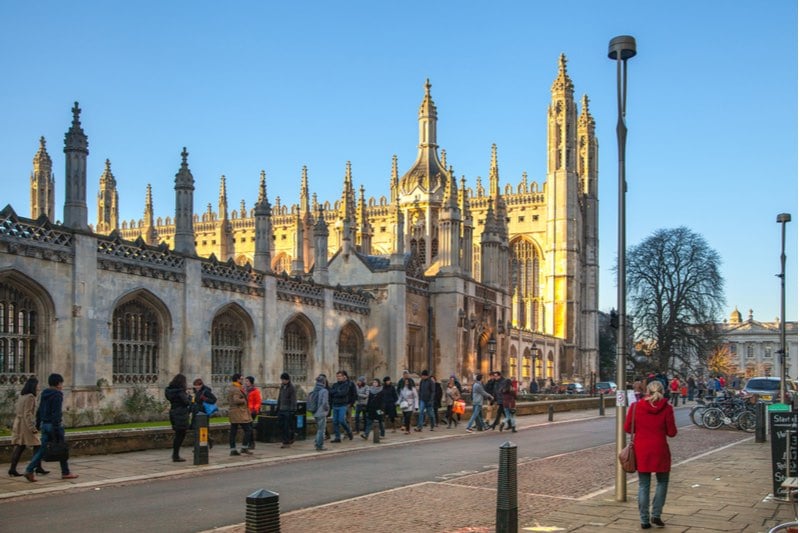Newsletter Signup - Under Article / In Page
"*" indicates required fields
Life science investors differ widely across biotech hubs in Europe. At Labiotech’s recent Refresh event, two investors from Cambridge and Paris compared the progress of these hubs and discussed the challenges that need to be overcome in biotech investment.
Funding is the lifeblood of early biotech startups, and investors are a crucial supplier. For this reason, the amount of investment in biotech hubs strongly affects the amount of successful startups they produce.
The Cambridge cluster is one of the most advanced biotech hubs in Europe. The hub is based around the University of Cambridge, UK, where academics are often able to find investors to fund spin-out companies based on their ideas. One example is Jonathan Milner, a genetics researcher who founded the online antibody provider Abcam in 1998. Under his leadership, the company grew to be worth over €2B today.
Having met with success, Milner became an angel investor in the Cambridge hub to help other companies to take off. “The thrill of being involved with early-stage companies where you can enable them to be successful and then they can go on and change the world — there’s no other feeling like it,” Milner said.
Paris is the home of a vibrant biotech hub that is following in Cambridge’s footsteps. One of the hub’s biggest life science VCs is Sofinnova Partners, which has nurtured successful Parisian companies such as DBV Technologies and Pixium Vision. This VC firm is also what shaped the career of Rafaèle Tordjman, who started off as a clinician, but ended up as a Managing Partner at Sofinnova until 2017.
Nowadays, Tordjman is in the process of building a VC fund called Jeito, which aims to fund biotech startups over a longer term than current VC funds do. Jeito will also have a nonprofit arm for mentoring women founders.

According to Milner and Tordjman, the last few decades have seen the biotech industry mature in the Cambridge and Paris hubs. In Cambridge, there are multiple investors ready to take on university spin-outs. Furthermore, the hub has a history of big spin-out successes.
“I think all of the academics now looking at Cambridge Antibody Technology and saying ‘hey, you know, I can do this!’” Milner said. “That feeds on itself and then you get more and more spin-outs coming out of the university.”
In addition, the technology transfer facilities in Cambridge are well developed, and have a more efficient procedure than many institutions. “The most important thing of all for universities is to have a very light touch on tech transfer, not to get so heavy that it just puts the entrepreneurs off and they can’t build the company,” added Milner.
In Paris, meanwhile, recent funders such as the investment bank Bpifrance have endowed entrepreneurs with a lot more funding options than 15 years ago, especially with international investors becoming more interested in the ecosystem. “We were really fighting to have co-investors in French companies,” noted Tordjman.
The investment options are now generally less risky and more scientifically grounded than in the past. “The quality is better and better. In the past I saw investors backing scientists without any experiments,” Tordjman said. “That’s not the case anymore.”

Despite the improvements across Cambridge and Paris, biotech companies in both hubs have a hard time getting funding at the early stages. In Paris, for example, there are few angel investors specialized in biotech. “If we could get business angels that are sophisticated enough to specialize in what we do, it would be helpful,” explained Tordjman. “Because biotech is so risky most of the time, there are not so many willing to invest.”
Cambridge has its own issues. Many startups in the city have problems raising big funding rounds after the seed stage. Angel investors often don’t have the resources to invest in these larger rounds, and it can be hard to attract VC investors.
“Too many companies, good companies, get into that ‘valley of death’ where they’ve raised the angel funding and then they can’t find the VC funding for a Series A, and they may fall at that spot,” Milner said.
To tackle this issue, Milner acts as a ‘super angel’ that can follow Cambridge biotech startups and invest bigger money in Series A and B rounds. However, he is only one of few investors like this in the healthcare field. “If I could wave a magic wand, I would have more of these people,” he said.
Even for biotechs that reach the later stages, finding investments is still a big time-sink. This is often because many VC firms only have short-term goals and fail to invest in subsequent rounds. This forces companies to divert vital time and resources to seeking new investors. “It’s really disruptive for the trajectory of the company,” Tordjman said. “You have to raise money again, you have to adjust yourself.”

Tordjman’s approach for solving this issue is similar to that of Milner: her company Jeito is designed to stay with startups through multiple rounds, removing lots of pressure for companies to find new investors, and focusing their efforts on developing treatments.
As well as within biotech hubs, there are issues to tackle in European biotech investment as a whole. One of these is the low female representation in leadership roles. Female founders across all fields raised only 2% of the total investments in 2018, and biotechnology is no exception to this trend. Jeito has been set up with a focus on women founders so that diversity can get a much-needed boost in biotech startups.
Another deep-seated problem with the investment field in Europe is communication between entrepreneurs and investors. The lack of a close network compounds the difficulties for foreign investors to invest across borders in the EU. “I probably spend half of my time networking and trying to bring VCs together to fill rounds,” said Milner. “I can only think of one VC that I work with that is German and the rest are from the UK or the US.”
By resolving core issues like gender diversity, communication, and continuity of funding in the biotech field, investors could overcome many limitations. It could also become easier to collaborate to fund promising companies. “We are so few VCs in Europe compared with the US, so we are not in competition actually because there are so many companies,” Tordjman concluded.
Images via E. Resko and Shutterstock






